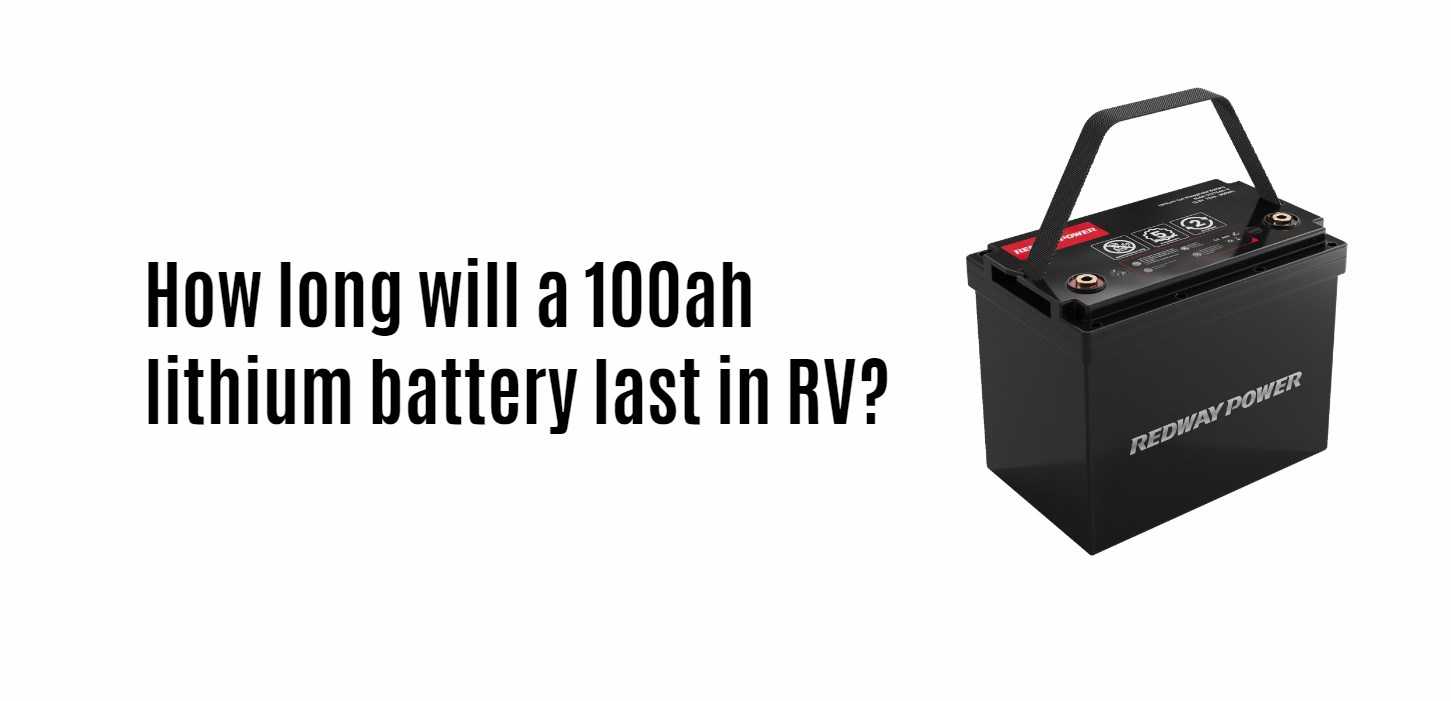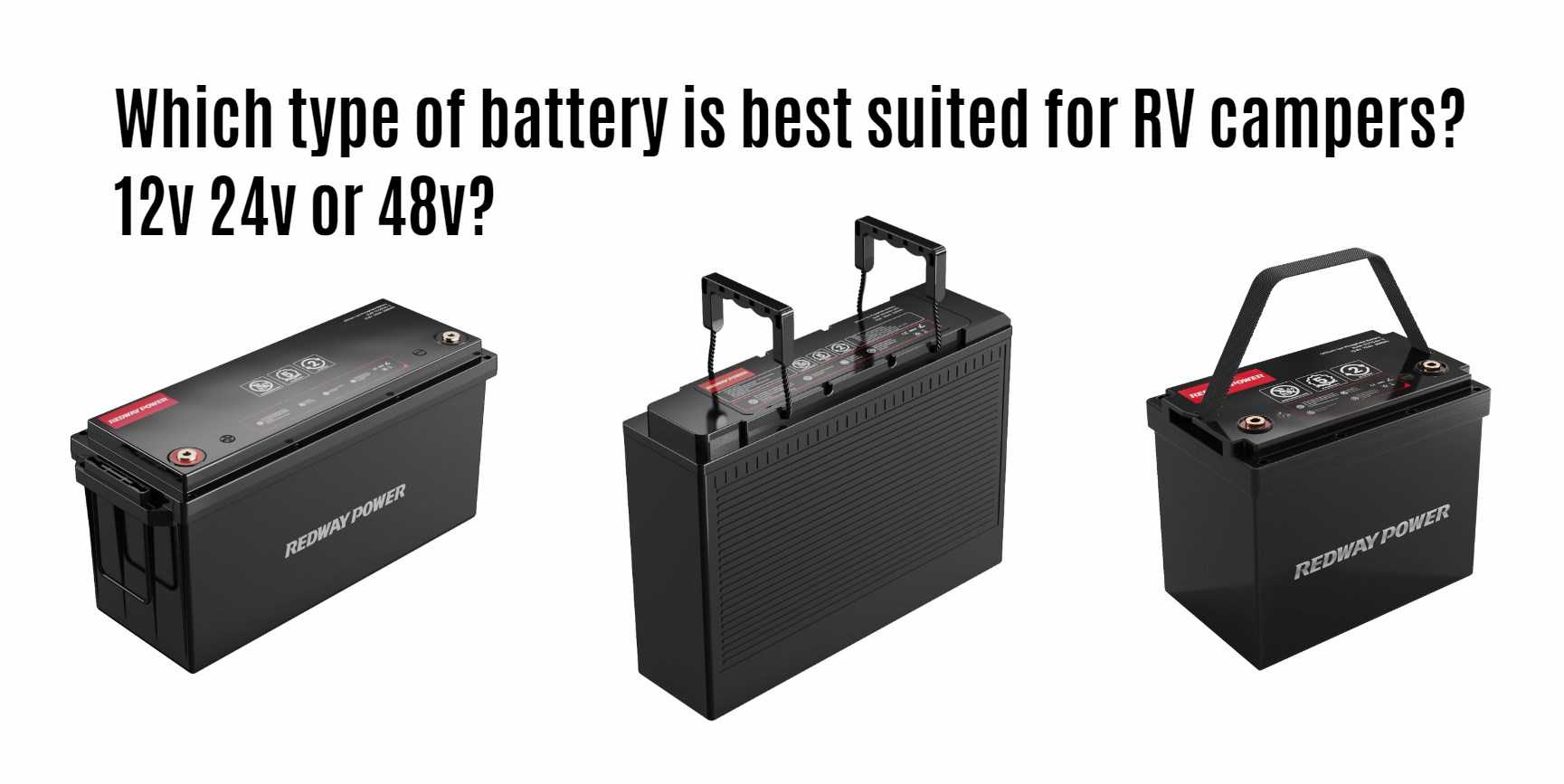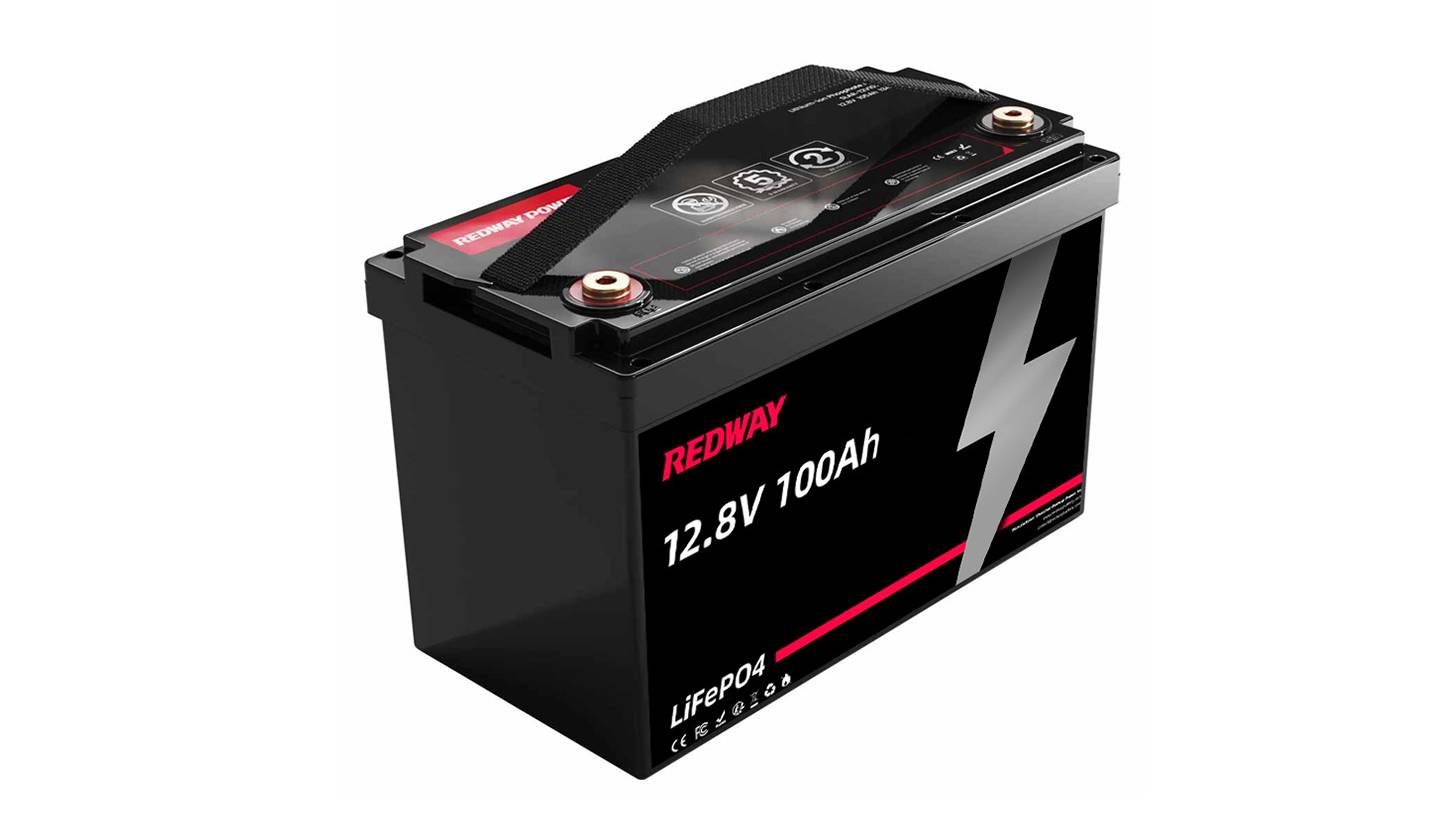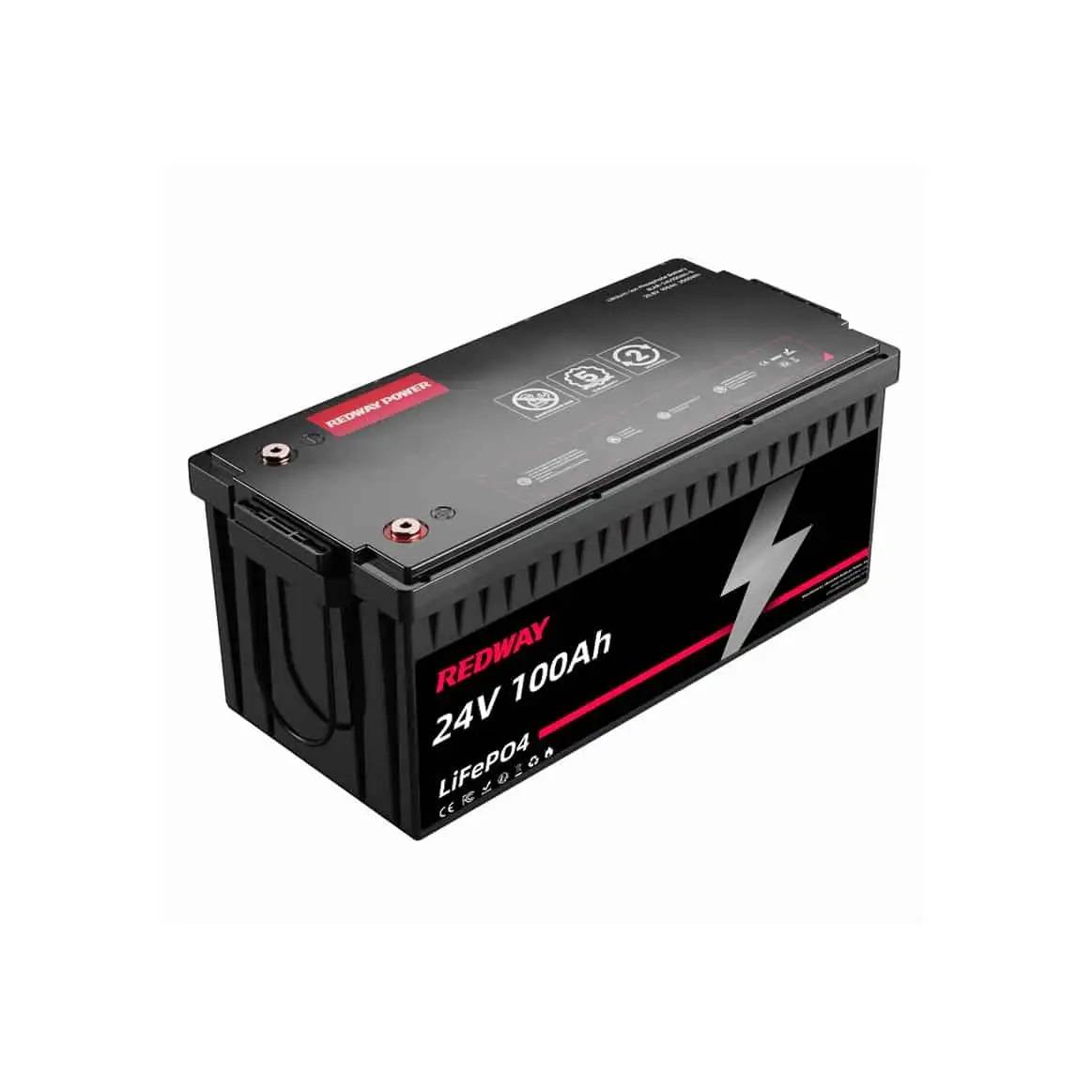- 12V Batteries: Most RVs are designed to work with 12V house battery banks. This voltage option is the most common and practical choice for RV campers. 12V batteries are widely available and offer better affordability due to their widespread use and availability of replacement parts.
- 24V and 48V Batteries: While 24V and 48V batteries are available, they are less commonly used in RV campers. These higher voltage options may have certain advantages in specific applications, such as larger power requirements or specialized setups. However, they may also come with limitations, such as limited availability of compatible devices and higher costs.
- Considerations: When choosing the best battery for your RV camper, it is important to consider compatibility with your RV’s electrical system, availability of replacement parts, and ease of charging. Opting for the most commonly used voltage, such as 12V, can simplify the process and ensure compatibility with existing components.
12V Batteries for RV campers
Looking for a 12V battery for your RV? Check out these options:
- Battle Born LiFePO4 Deep Cycle Lithium Battery: Reliable with built-in protection.
- Renogy Lithium 12V Smart Battery: Popular among RVers, parallel compatible.
- ExpertPower 12V Lithium Deep Cycle Battery: Lightweight design.
- Li Time 12V 100Ah Lithium Battery: Basic option with good performance.
Ensure compatibility with your RV’s electrical system.
- Battle Born LiFePO4 Deep Cycle Lithium Battery:
- Voltage: 12V
- Amp Hours: 100
- Weight: 31 lbs
- Built-in BMS and temperature protection.
- Suitable for RVs, marine applications, and off-grid setups.
- Renogy Lithium 12V Smart Battery:
- Voltage: 12V
- Amp Hours: 100
- Weight: 26 lbs
- Parallel compatible.
- Popular among RVers for its reliability.
- ExpertPower 12V Lithium Deep Cycle Battery:
- Voltage: 12V
- Amp Hours: 100
- Weight: 22.6 lbs
- Lightweight design.
- Li Time 12V 100Ah Lithium Battery:
- Voltage: 12V
- Amp Hours: 100
- Weight: 25.4 lbs
- Basic option with good performance.
Remember that most RVs run on 12V power, so choose a compatible battery for your electrical system. You can easily wire 12V lithium RV batteries in parallel to add more amp hours to your RV battery setup.
24v Batteries for RV campers
When it comes to choosing between a 12V and 24V battery system for your RV, there are important considerations to keep in mind. Let’s explore the advantages of each:
- 12V System:
- Compatibility: Most RV appliances, such as lights and refrigerators, operate on 12 volts. A 12V system ensures compatibility without the need for voltage converters.
- Charging Efficiency: Charging RV batteries while driving is straightforward with a 12V system. You can link it to the vehicle’s 12V starting battery using a DC-DC charger.
- Common Choice: Smaller RVs with limited space and power needs often benefit from a 12V system.
- 24V System:
- Efficiency: A 24V system draws less current for the same power output, resulting in reduced heat generation and power wastage. Smaller wires can be used due to lower current flow, improving overall performance efficiency.
- Cost-Effective: Smaller and less expensive solar charge controllers can be used with a 24V system, making it ideal for RVs equipped with solar panels.
- Larger RVs: Larger RVs with higher power demands may find the efficiency and cost savings of a 24V system advantageous.
Remember that your choice should align with your specific RV setup and power requirements. Whether you opt for 12V or 24V, consider upgrading to LiFePO4 batteries for enhanced performance and reliability
48v Batteries for RV campers
When considering 48V batteries for your RV, it’s essential to understand the benefits and compatibility. While 48V systems are less common in RVs, they offer advantages for specific setups:
- Energy Density: Lithium batteries at 48V provide impressive energy density, allowing them to be lighter and smaller while storing more power.
- Weight Savings: Compared to lead-acid batteries, 48V lithium batteries weigh significantly less, making them ideal for weight-conscious RVers.
- Charging Efficiency: Lithium batteries charge faster and have a longer lifespan, enhancing overall performance.
- Solar Integration: If you have a large solar array (such as 2,280 watts), a 48V lithium system can efficiently store the energy generated.
Here are some 48V lithium battery options for RVs:
- Renogy 48V 50Ah LiFePO4 Battery:
- Built-in BMS
- Suitable for RVs, campers, vans, marine applications, and off-grid setups.
Remember to verify compatibility with your RV’s existing components and charging system.
Types of RVs: Class A, B, and C.
Types of RVs: Class A, B, and C. Class
Explore the three main types of RVs:
Class A Motorhomes: Large, bus-like vehicles with spacious interiors.
Class B Campervans: Smaller vans with basic amenities for solo travelers or couples.
Class C Motorhomes: Mid-sized RVs with over-cab sleeping areas, ideal for families.
Choose based on comfort, practicality, and driving ease!
Let’s explore the three main types of RVs:
- Class A Motorhomes:
- Size: These are the largest motorhomes, resembling buses. They offer spacious interiors with multiple slide-outs.
- Features: Class A motorhomes often include amenities like full kitchens, bathrooms, and entertainment systems.
- Ideal For: Families or travelers who prioritize comfort and luxury.
- Driving Experience: They can be challenging to maneuver due to their size.
- Examples: Winnebago Adventurer, Fleetwood Bounder.
- Class B Campervans:
- Size: Smaller than Class A motorhomes, campervans are built on van chassis.
- Features: They have basic amenities, including a bed, small kitchen, and sometimes a bathroom.
- Ideal For: Solo travelers, couples, or small families seeking simplicity and versatility.
- Driving Experience: Easy to drive and park.
- Examples: Mercedes-Benz Sprinter-based campervans, such as the Winnebago Revel.
- Class C Motorhomes:
- Size: Mid-sized motorhomes with a distinctive over-cab sleeping area.
- Features: Class C motorhomes offer a mix of comfort and practicality, with amenities similar to Class A.
- Ideal For: Families, as they provide more space than campervans but are easier to handle than Class A.
- Driving Experience: Maneuverable, especially for those transitioning from smaller vehicles.
- Examples: Thor Four Winds, Jayco Redhawk.
Remember to choose an RV type that suits your travel style, budget, and preferences!
Is it OK to leave a LiFePO4 battery on the charger?
Yes, it’s generally safe to leave a LiFePO4 battery on the charger. Unlike some other battery types, LiFePO4 batteries are less prone to overcharging. However, consider the following tips:
- Smart Chargers: Use a charger specifically designed for lithium batteries. Smart chargers adjust the charging process based on the battery’s needs.
- BMS Protection: LiFePO4 batteries have a built-in Battery Management System (BMS) that protects against overcharging and over-discharging. Trust the BMS to manage the charging process.
- Avoid Prolonged Overcharging: While it’s safe to leave the battery connected, avoid excessively long periods of overcharging.
How big of a lithium battery do I need for RV?
When selecting a lithium battery for your RV, consider capacity, usage, weight, and space. Lithium batteries range from 50Ah to 400Ah, with lighter weights than lead-acid counterparts. Assess your daily energy needs for appliances like lights and fridges. Remember, higher capacity means more energy but may also be heavier, so choose wisely based on your specific requirements.
- Capacity: Lithium batteries come in various capacities, typically measured in amp-hours (Ah). Common sizes include 50Ah, 100Ah, 200Ah, and 400Ah.
- Usage: Assess your power needs. Calculate the daily energy consumption of your appliances (lights, fridge, devices).
- Weight: Lithium batteries are lighter than lead-acid batteries. For example, a 100Ah lithium battery weighs around 30 pounds, while a lead-acid battery of the same capacity weighs about 70 pounds.
- Space: Check the physical dimensions to ensure it fits in your RV battery compartment.
Remember, larger capacity batteries provide more energy but may be heavier. Choose based on your specific requirements!
What type of battery is best for an RV trailer?
For an RV trailer, consider these battery types:
- Deep Cycle Batteries: AGM and gel batteries are maintenance-free options, while flooded lead-acid batteries need regular upkeep.
- Lithium Batteries: LiFePO4 batteries are lightweight, durable, and efficient, with built-in Battery Management Systems for safety. Specific recommendations include Odyssey PC680 (AGM), Trojan T-105 (lead-acid), and Epoch Batteries 12V 460Ah LiFePo4.
Details:
- Deep Cycle Batteries:
- AGM (Absorbent Glass Mat) Batteries: Maintenance-free and vibration-resistant, AGM batteries are a popular choice for RVs.
- Gel Batteries: Also maintenance-free, gel batteries are less common but offer reliability.
- Flooded Lead-Acid Batteries: Traditional but require regular maintenance.
- Lithium Batteries:
- LiFePO4 (Lithium Iron Phosphate): Lightweight, long-lasting, and efficient. Brands like Battle Born and LiTime offer excellent options.
- LiFePO4 Batteries with BMS: Built-in Battery Management Systems enhance safety and performance.
- Specific Recommendations:
- Odyssey PC680: A reliable AGM battery.
- Trojan T-105: A value option for house batteries.
- Epoch Batteries 12V 460Ah LiFePo4: A high-capacity lithium option.
Remember to choose a battery that aligns with your power requirements, budget, and RV setup!
How long will a 100ah lithium battery last in RV?
A 100Ah lithium battery can last anywhere from 120 hours (running a 10W appliance) to 36 minutes (running a 2,000W appliance). Specifically, a 100Ah 12V battery has a capacity of 1.2 kWh, which is more than 2% of the capacity of the Tesla Model 3 car battery. To calculate how long it will run any appliance, you can use the formula:
Battery Life (hours)= Battery Capacity (Wh) / Appliance Power (W)
For example:
- Running a 400W appliance: Approximately 2 hours and 30 minutes.
- Running a 100W appliance: Around 12 hours.
Remember that actual usage depends on the specific appliance and your power needs!








